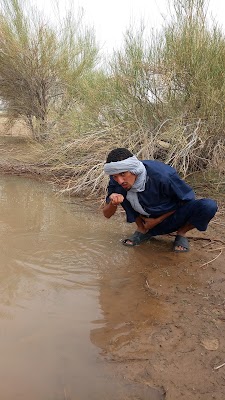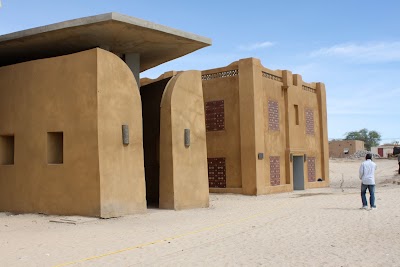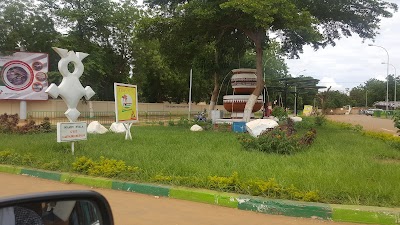Lake Faguibine (بحيرة فاغيبين)
Overview
Lake Faguibine, nestled in the breathtaking Taoudénit Region of northern Mali, is a captivating destination that seamlessly combines natural beauty, historical richness, and cultural significance. Though it may not be on the radar of many global tourists, Lake Faguibine offers a unique and profound experience that immerses visitors in the tranquil splendor of the Sahelian landscape and the deeply rooted traditions of the local communities.
Historical Significance
Once an expansive and vibrant body of water, Lake Faguibine has served as a vital lifeline in a predominantly arid region for centuries. Its origins trace back thousands of years, with evidence indicating that it thrived even in ancient times. The lake's water levels are primarily sustained by the annual inundations of the Niger River, creating a seasonal oasis that transforms the surrounding desert into fertile land. Despite fluctuations in water levels over the years, driven by climatic changes and human activities, Lake Faguibine has retained its crucial ecological and cultural role within the region.
Economic Importance
The significance of Lake Faguibine extends beyond its natural beauty. For centuries, it has been central to the livelihoods of various ethnic groups, including the Tuareg, Fulani, and Songhai people. These communities have relied on the lake for fishing, agriculture, and livestock grazing. The seasonal presence of the lake allows for the deposition of rich silt along the shores, facilitating the cultivation of crops such as millet, rice, and wheat. This agricultural bounty has supported local economies and ensured food security for generations.
Ecological Diversity
In terms of ecological importance, Lake Faguibine serves as a critical habitat for a diverse array of wildlife. During the wet season, it transforms into a haven for migratory birds, many traveling great distances to nest and feed in this lush environment. Furthermore, unique fish species thrive in its waters, contributing to the lake's biodiversity and providing vital resources for local fishermen. The dynamic interplay between the lake's water levels and the surrounding ecosystem exemplifies nature’s cyclical patterns and resilience.
Experiences for Tourists
For tourists, Lake Faguibine offers an array of enriching experiences and sights. One of the most remarkable aspects of visiting the lake is the opportunity to witness the traditional lifestyles of the indigenous people. Tourists can explore vibrant local markets brimming with artisanal goods, textiles, and ceramics, providing a glimpse into the region's rich cultural tapestry. Additionally, guided tours offer insights into the ancient water management systems developed by locals, showcasing their remarkable ingenuity in adapting to a changing environment.
Scenic Beauty
The scenic beauty of Lake Faguibine is another highlight. The stunning contrast between the shimmering waters and the vast stretches of desert creates a mesmerizing landscape. During sunrise and sunset, the skies above the lake are painted with vibrant hues of orange, pink, and purple, making for breathtaking views that are perfect for photography enthusiasts. For the adventurous traveler, exploring the surrounding dunes and savannahs on camelback or foot provides an unforgettable encounter with the raw beauty of the Malian wilderness.
Cultural Legends
Adding to the allure of Lake Faguibine is its role in local oral traditions and folklore. Legends abound with tales of mythical creatures inhabiting the lake and stories of ancient civilizations that flourished along its shores. These narratives, passed down through generations, enrich the experience of visiting Lake Faguibine and deepen one’s understanding of the area's historical and cultural significance.
Travel Tips
When planning a visit to Lake Faguibine, it's essential to consider the best times to travel. The wet season, typically from July to September, is when the lake is at its fullest and most vibrant. However, the dry season also holds unique charm and offers ample opportunities for exploration and cultural immersion. Travelers should be mindful of the remote location and prepare accordingly, ensuring they have the necessary supplies and arrangements for a comfortable visit.
In conclusion, Lake Faguibine is a hidden gem in the Taoudénit Region of Mali that promises an enriching and multifaceted experience for international travelers. With its historical roots, ecological significance, stunning landscapes, and vibrant local culture, the lake stands as a testament to the resilient spirit of the people who call its shores home. A visit to Lake Faguibine is not just a journey to a picturesque destination; it is a passage into a world where history, nature, and culture converge in profound and beautiful ways.








